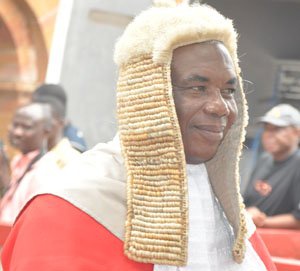A Senior Law Lecturer at the Faculty of Law of the University of Ghana, Dr Raymond Atuguba, has faulted Supreme Court Judge, Justice Jones Dotse, for making a public comment on the ruling of the Supreme Court on persons who registered to vote with their NHIS cards.
According to him, the learned Judge was out-rightly wrong in granting an interview to a journalist as he clarified the position of the Court in its ruling that has become a subject of controversy among the public including lawyers.
There have been almost a month-long contention over grey areas in the Supreme court verdict which concerns the names of persons who used the NHIS cards in registering before the 2012 elections.
The Supreme Court in a ruling Thursday, May 4, 2016 described the nation’s electoral register as “reasonably inaccurate” ordering the EC to clean it up.
But the EC said the Supreme Court’s ruling did not instruct the commission to delete the names of those who registered with their NHIS cards.
However, Justice Dotse during a training session for Magistrates in Accra granted an interview to the media where he clarified that the EC ought to delete names of the persons who used the NHIS cards as a proof of identity while registering because such medium is invalid and unconstitutional for Ghanaian citizenship.
But his comment has been condemned by many especially supporters of the ruling National Democratic Congress (NDC), who have questioned why he engaged in an unethical act of making that public comment.
Speaking on Joy FM’s News File show Saturday, Dr Atuguba stated that per the current Code of Conduct for Judges and Magistrates, Justice Dotse erred in granting the media that particular interview.
He said part of rule 3 (9) provides that “(9) Except as otherwise provided in the section, a judge shall abstain from public comment about a pending or impending proceeding in any court, and shall require similar abstention on the part of court personnel.
(a) A judge is permitted to make public statements in the course of his or her official duties or to explain for public information the procedures of the court, general legal principles, or what may be learned from the public record in a case.
General News of Sunday, 29 May 2016
Source: kasapafmonline.com

















